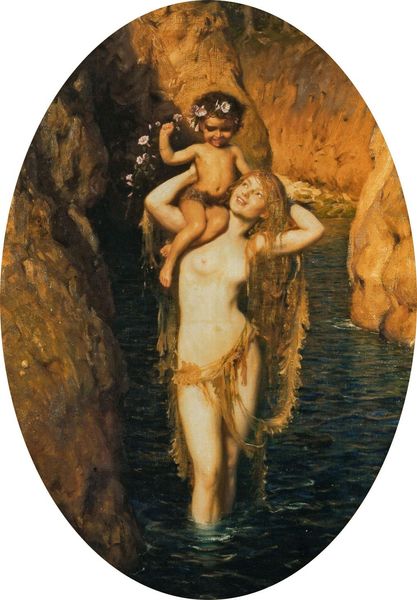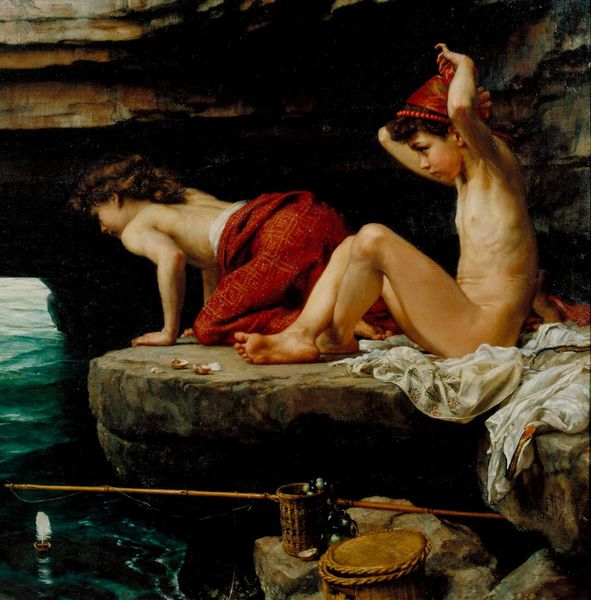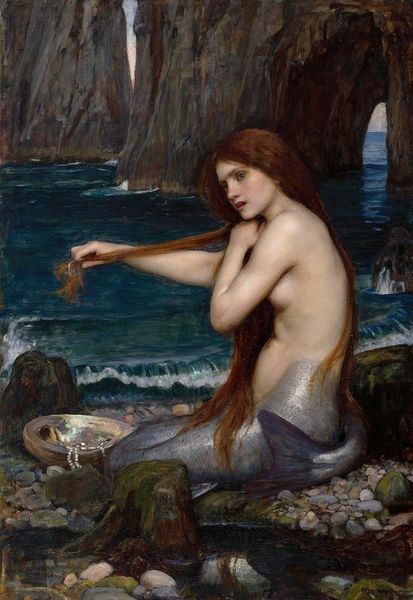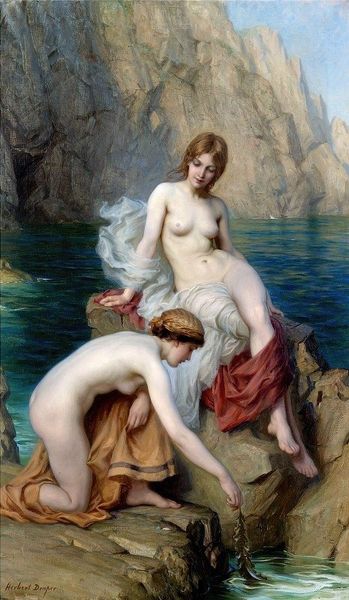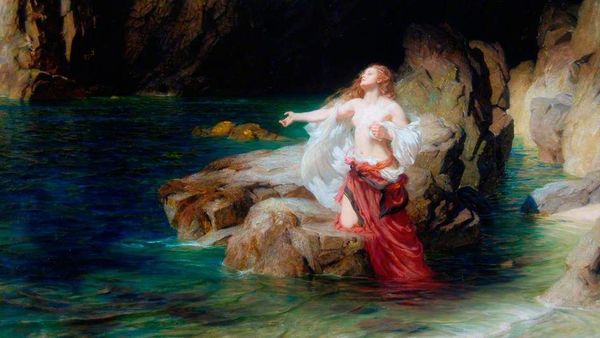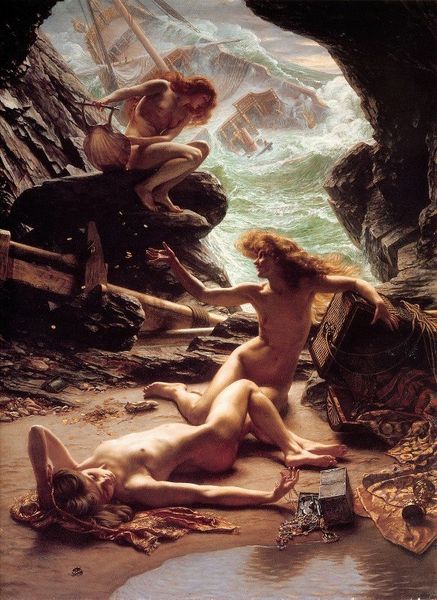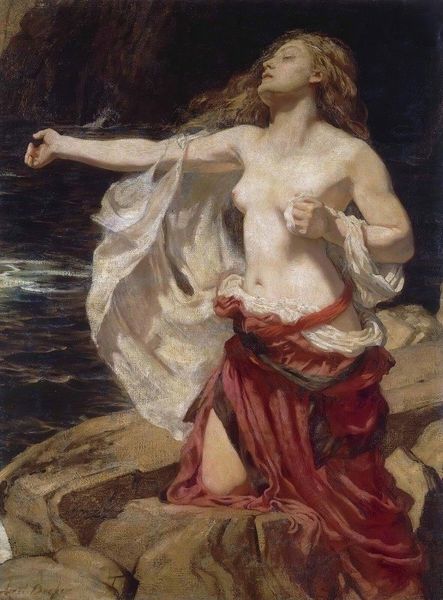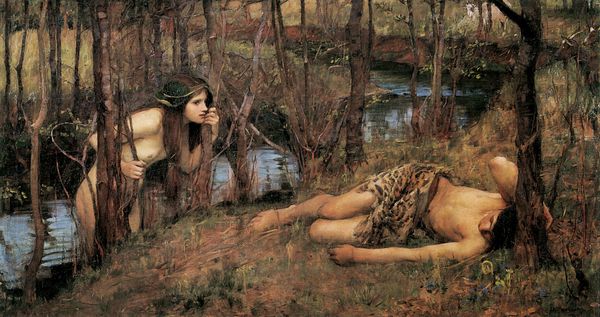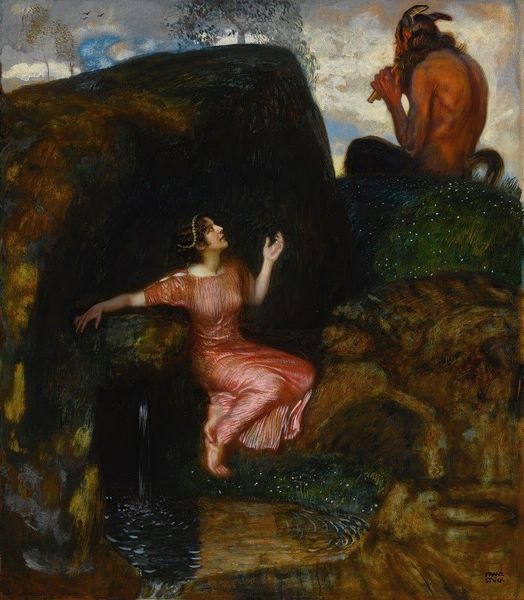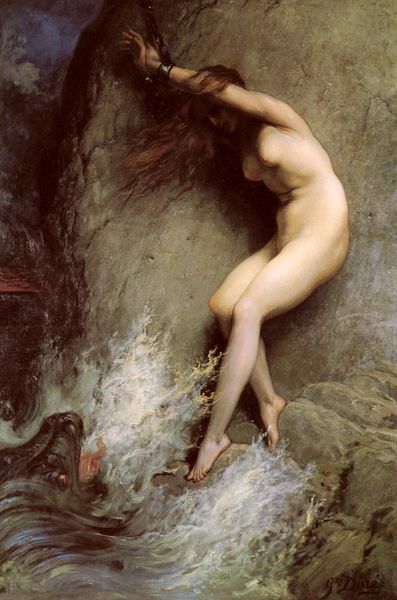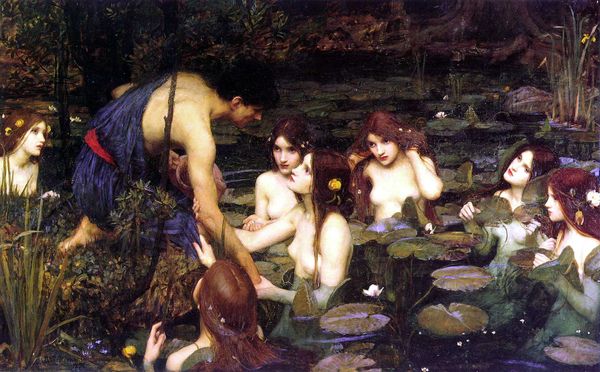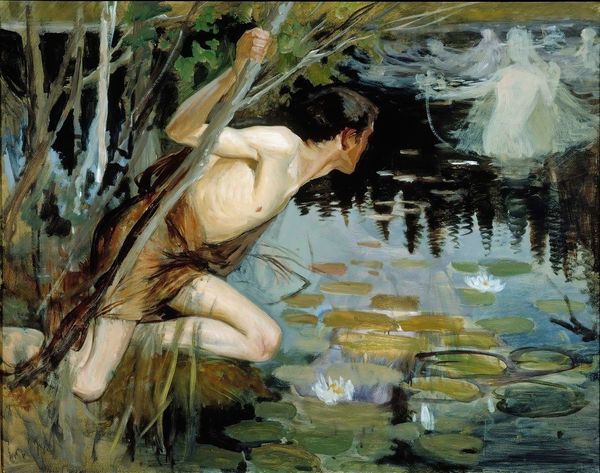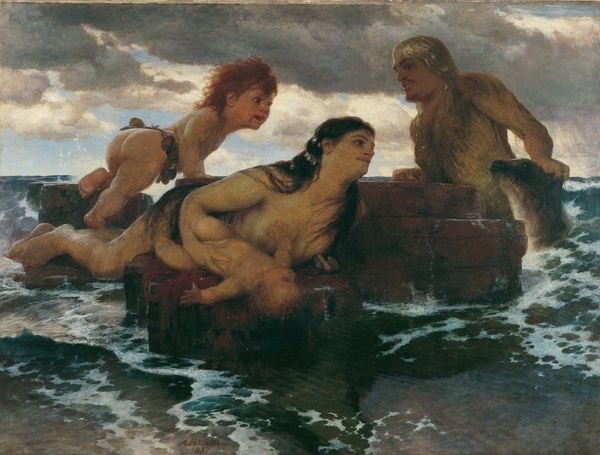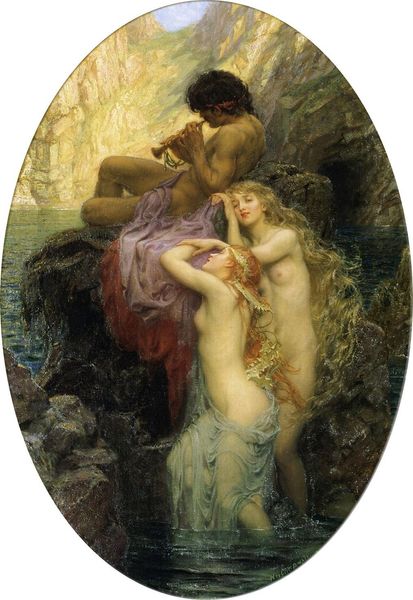
painting, oil-paint
#
painting
#
oil-paint
#
figuration
#
oil painting
#
romanticism
#
mythology
#
pre-raphaelites
#
nude
Copyright: Public Domain: Artvee
Curator: The immediate mood is definitely melancholy, a certain fatalism almost clinging to the very surface of the oil paint, wouldn't you say? Editor: It is quite striking, isn't it? Here we have "The Siren," a painting rendered by John William Waterhouse in his signature romantic and pre-Raphaelite style. Its composition undeniably leans into that sense of looming tragedy. Curator: It’s interesting that he leaves it undated, the tragedy rendered almost timeless...I love the stark contrast of her stillness, that placid, indifferent gaze, versus the desperate reach of the drowning figure below. I'm almost feeling a little seasick just looking at it. Editor: Right! Waterhouse knew how to capitalize on this mythic narrative to engage in complex questions about female agency. I mean, we see her literally elevated, enthroned upon that rock while a man quite literally drowns at her feet. And she’s singing… for pleasure? Power? Is this simply survival for her? It hits differently knowing this was painted, displayed, viewed in a patriarchal culture. Curator: A valid point. It all reads like that siren’s song is really an anthem of liberation, however destructive. She's in command. Even the harsh, muted palette echoes that sense of impending doom – which, ironically, might actually be freeing for her. Editor: Perhaps! And beyond that dramatic confrontation, there is the social framing to think of as well. These artistic depictions, disseminated in major exhibitions, become these coded mirrors reflecting societal anxieties about gender, class, and power itself. It places art at the center of how we wrestle with uncomfortable themes of control and submission. Curator: So, art becomes a hall of mirrors. Perfectly put! What begins as personal catharsis expands outward, reflected and refracted across countless viewers. The siren calls to more than sailors then. Editor: Precisely, her song is a question... one we are still pondering even now. Curator: Precisely! I suppose there's no better purpose than to leave the audience humming with their own answers to those questions, then?
Comments
No comments
Be the first to comment and join the conversation on the ultimate creative platform.
